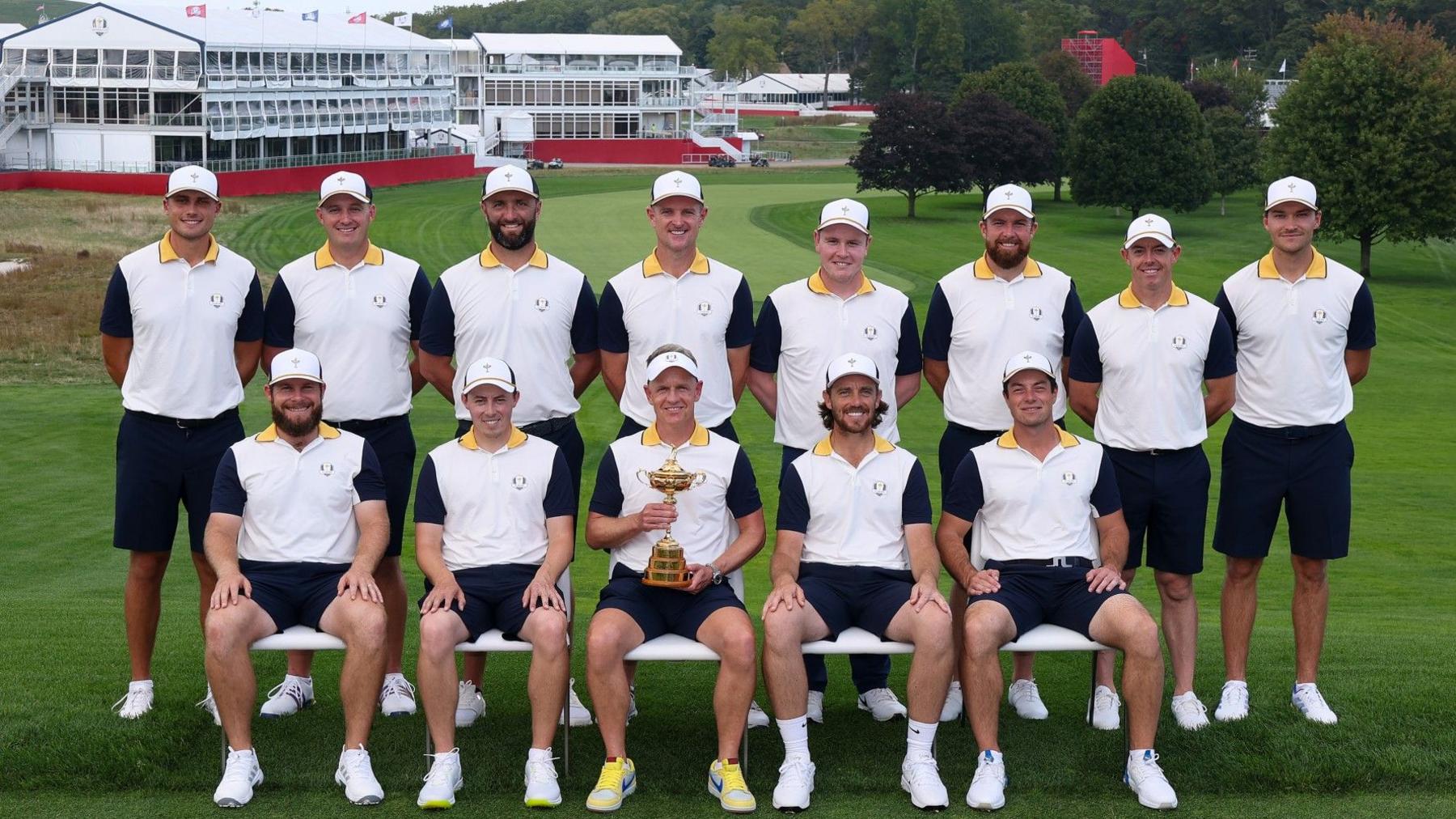Why Friday’s Opening Session is Likely to Shape the Ryder Cup
The Ryder Cup, one of golf’s most electrifying team events, is a spectacle that blends individual brilliance with collective grit. As the 45th edition approaches at Bethpage Black in New York from September 26-28, 2025, all eyes will be on the opening session. This Friday morning could dictate the entire tournament’s trajectory, setting the tone for three days of intense competition. With the US hosting and Europe defending their recent dominance, the stakes couldn’t be higher. Success here isn’t just about points—it’s about momentum, morale, and the psychological edge that often decides the Ryder Cup.
The High Stakes of the Ryder Cup’s Opening Foursomes
We won’t know the exact pairings until Thursday evening, but the format is clear: US captain Keegan Bradley has chosen to kick off with alternate shot foursomes, a decision that underscores the format’s pivotal role in the Ryder Cup. This grueling style demands flawless coordination between partners—no room for error, no solo heroics. It’s team golf at its rawest, where one mishit can unravel an entire match.
Historically, the opening foursomes session has been a crystal ball for the Ryder Cup’s outcome. In recent years, the team that dominates this phase tends to control the narrative. Take Europe’s triumphant 2023 performance in Rome under Luke Donald: they stormed to a 4-0 lead in the morning foursomes, a blistering start that left the US reeling. Europe maintained that buffer, securing a 16.5-11.5 victory and extending their streak of convincing home wins. Since the miraculous 2012 comeback at Medinah—the last time Europe won on US soil—the hosts have ruled supreme. In the five Ryder Cups that followed, the winning side claimed the Friday morning foursomes decisively, often dropping few points.
Contrast that with the US’s record home triumphs. At Whistling Straits in 2021, they grabbed a 3-1 edge in the opening foursomes, paving the way for a record 19-9 thrashing. Four years earlier at Hazeltine, a 4-0 sweep in the same session buried Europe early. These aren’t coincidences; they’re blueprints for success in the Ryder Cup. The alternate shot format tests a team’s cohesion under pressure, revealing cracks in form and unity before the weekend singles even begin.
Why Alternate Shot is the Ultimate Test in the Ryder Cup
What makes foursomes so unforgiving? It’s the brutal interdependence—no second chances, just shared fate. Picture Tiger Woods and Phil Mickelson, rivals thrown together at Oakland Hills in 2004. Woods’ infamous glares as Mickelson’s errant shots landed them in peril captured the format’s intensity. There’s no hiding; every drive, every putt binds partners in vulnerability. This setup mirrors the Ryder Cup’s essence: a pressure cooker that exposes a team’s true mettle.
Europe has traditionally favored fourball matches to open home events, offering more leeway for individual flair. But Donald’s 2023 gamble paid off spectacularly, bucking the trend and proving foursomes can be a weapon. Now, as the visitors, Europe faces a steeper challenge. In their last two away Ryder Cups (2016 and 2021), they’ve lagged 11.5-4.5 in foursomes play. Reversing this is non-negotiable if they hope to end the US’s home dominance.
Home advantage at Bethpage Black—a notoriously tough, links-style beast—will amplify the pressure. The New York crowd is notorious for its fervor, backing the home side while heckling opponents. Donald’s strategy? A blistering start to silence the roars and perhaps turn the galleries against a US team motivated by hefty incentives: $500,000 per player, with $300,000 to charity. Europe, playing for pride and legacy without financial dangling carrots, enters united and hungry.
Europe’s Experience Edge in the Ryder Cup Battle
Experience could be Europe’s ace. With only rookie Rasmus Højgaard among their ranks, the squad boasts 11 veterans from the 2023 Rome rout. Battle-tested pairs like Rory McIlroy and Tommy Fleetwood, or Jon Rahm and Tyrrell Hatton, have forged unbreakable bonds in past Ryder Cups. These duos thrive in foursomes, blending precision and resilience to outmaneuver foes from the first tee.
Donald isn’t going it alone. His vice-captains form a dream team: 2014-winning captain Paul McGinley for strategy, statistical wizard Edoardo Molinari, and past skippers Thomas Bjørn and José María Olazábal. This brain trust draws from multiple victories, offering insights honed in high-stakes environments.
The US, meanwhile, leans on Bradley’s vision but grapples with youth. Four rookies—Ben Griffin, JJ Spaun, Russell Henley, and Cameron Young—face baptism by fire. First-timers have shone before, but Bethpage’s cauldron demands nerves of steel, especially in morning foursomes. Bradley’s vice-captains include Jim Furyk (nine appearances, two wins, and the 2018 losing captain), Brandt Snedeker (one win in two Cups), and Webb Simpson (zero wins in three). It’s solid support, but Europe’s depth gives them a psychological upper hand.
Bradley himself is a wildcard story. Scarred by Medinah’s 2012 collapse—where Europe erased a 10-4 deficit—he vows not to unpack his kit bag until victory. At 39 and in peak form, his selections over himself for spots signal trust, potentially igniting his team. Yet, that horrifying memory looms large.
The Broader Dynamics Shaping This Ryder Cup
The buildup is a media minefield: press conferences laced with tension, captains dodging controversy to keep focus sharp. With aggregate scores since 2012 razor-close (Europe up 70.5-69.5 despite home blowouts), anything can tip the scales. Will the pattern of lopsided home wins persist, or will we witness a nail-biter?
Home soil matters, but so does savvy. Bethpage’s opening session will crystallize this clash—raw US passion versus Europe’s tactical nous. If it’s tight after foursomes, the Ryder Cup could stretch to Sunday’s drama. As the teams tee off, the world watches: this isn’t just golf; it’s a saga of rivalry and redemption.
In the end, Friday’s opening session remains the Ryder Cup’s fulcrum, where legends are forged and fortunes shift. Whether Europe leverages experience to defy the odds or the US harnesses home fire, one thing’s certain: it will shape the 45th Ryder Cup into an unforgettable chapter.
